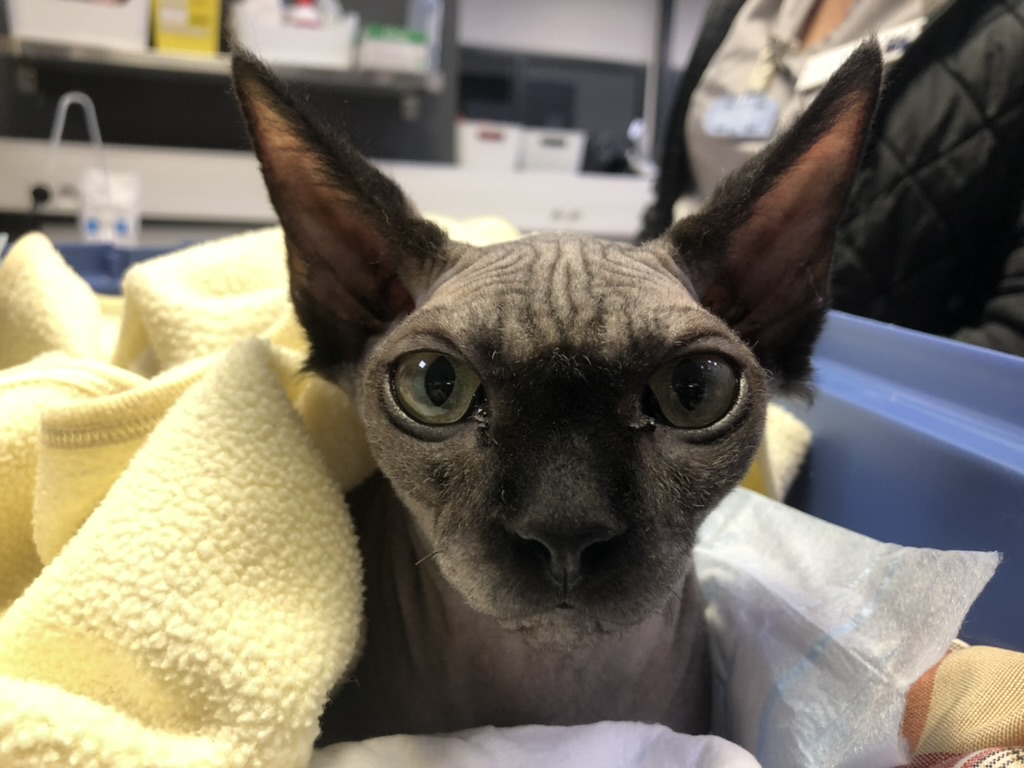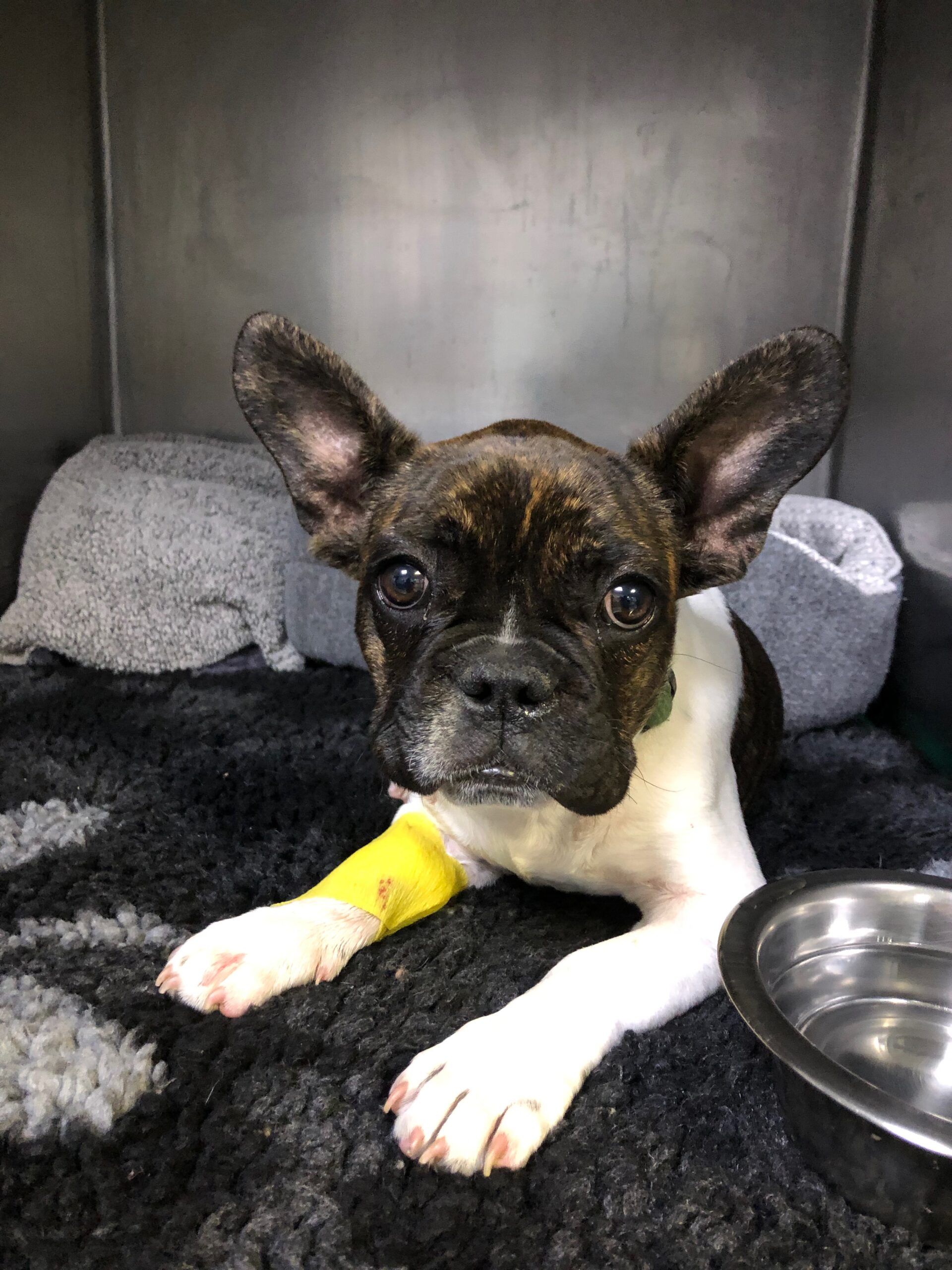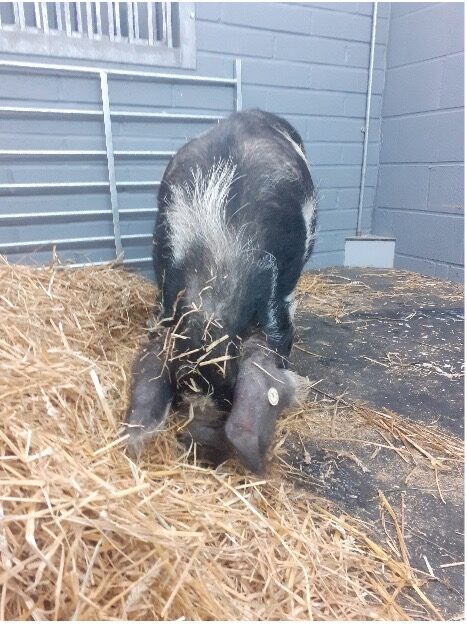Toscane, the Sphynx cat who underwent a faecal transplantation
Toscane, a 9mth old female neutered Sphynx cat
Before visiting the Specialist.
Animal Treated
Dog
Animal Condition
Paralysis
Specialist(s) Required
Neurology
Diagnostic imaging
Veterinary nursing
Physiotherapy
Hydrotherapy
Rahni, a 3-year old Bernese Mountain dog, was suddenly paralysed… read what happens next.
Before visiting the Specialist
Bernese Mountain Dog Rahni was out walking with her owners when she suddenly became paralysed and couldn’t move her legs. Her owners rushed her to their local veterinary practice and the three-year-old family pet was immediately referred as an emergency to Alex Forward, Neurology Specialist at Davies Veterinary Specialists in Hertfordshire.
Rahni’s Care
Rahni’s neurological examination was consistent with a spinal cord injury in the lower part of her neck, preventing her from being able to walk for herself.
An emergency MRI scan revealed a change to her spinal cord most consistent with a fibrocartilaginous embolism (FCE). This occurs after a blood vessel becomes blocked and focally deprives the spinal cord of oxygen for a short period of time. The blockage is caused by fibrocartilaginous material thought to come from an intervertebral disc.
A fibrocartilaginous embolism is a non-surgical condition, unlike an intervertebral disc extrusion (slipped disc) which often requires surgery.
Rahni’s Progress
Rahni stayed at Davies for just over two weeks for intensive specialised nursing, physiotherapy and hydrotherapy at the practice’s state-of-the-art Therapy and Fitness Centre (for Rahni’s video showing her on arrival, her therapy and progress click on the video link under ‘key facts’ on the left).Typically, FCE affects one side of the body more than the other and in Rahni’s case it was her left side, where her paw placement was absent and prevented her from being able to use her front leg at all. During her rehabilitation, the team focussed treatment on Rahni’s left side encouraging her to use the affected front leg as much as possible to ensure she would eventually be able to walk for herself again.
Rahni steadily improved and was able to walk to her owner’s car unaided when she was discharged just over two weeks later. The practice’s team of chartered physiotherapists and hydrotherapists will continue to see Rahni to further improve her mobility. The long-term prognosis for Rahni is good and continued improvement is fully expected.
Article provided by Alex Forward RCVS and EBVS® European Specialist in Veterinary Neurology
Davies Veterinary Specialists
www.vetspecialists.co.uk


